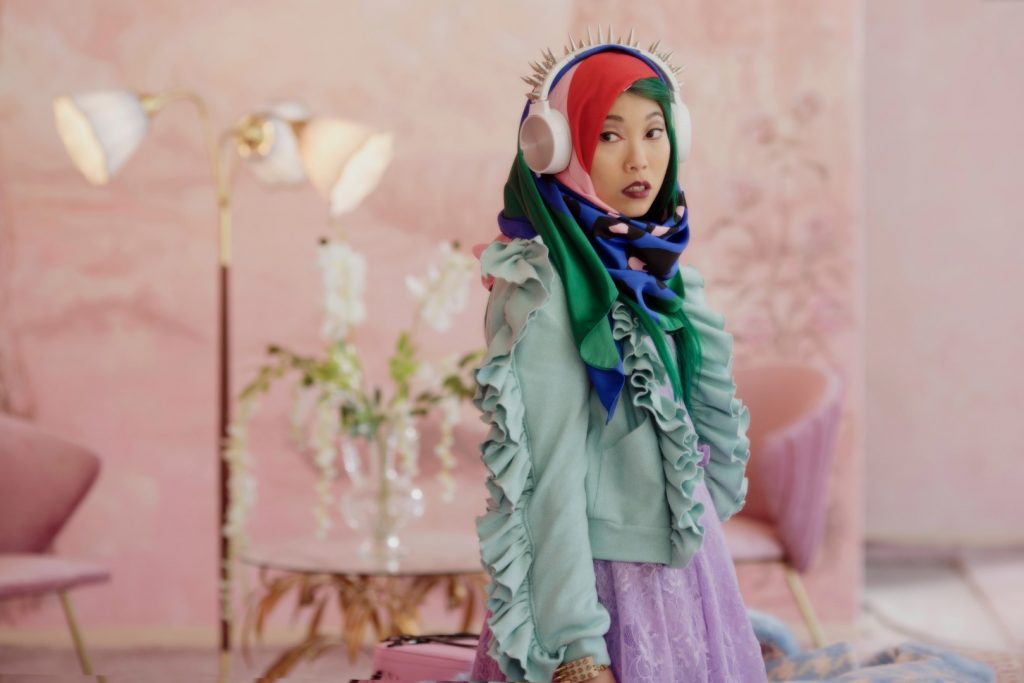Read also:
How to Watch FX Live Without CableHow To Watch AMC Without CableHow to Watch ABC Without CableHow to Watch Paramount Network Without CableEmma Roberts fights the patriarchy in this trippy feminist fairy tale.
The most remarkable thing about Paradise Hills is that it isn’t based on a YA novel. The vaguely futuristic tale of a young woman sent to a sadistic finishing school seems like exactly the kind of story that would’ve emerged in the immediate post-Harry Potter landscape. Unfortunately, Paradise Hills also feels like an adaptation where all the depth from the book got lost in translation. You could imagine its intriguing themes and characters being richer in a format that has more space to explore them. As it is, however, Paradise Hills winds up playing like a watered-down hodgepodge of Hunger Games, Gossip Girl, a feminism 101 textbook, and Lady Gaga’s music video oeuvre.
To its credit, Paradise Hills offers an aesthetic you won’t soon forget. In her feature directorial debut, Spanish director Alice Waddington creates a wholly original visual palate for her feminist coming-of-age tale. The film is set in a socially stratified world of “uppers” and “lowers,” although we experience it mostly through the limited perspective of Paradise, a reformatory for non-conforming young women.
Part French boarding school, part Alice In Wonderland theme park, Paradise infantilizes its 20-something residents/prisoners by dressing them in white knee-length gowns with ruffled collars and puffed sleeves that resemble cages. That Victorian-era style carries over into some retrograde Victorian values too. According to glamorous headmistress Duchess (Milla Jovovich), women are meant to be pretty, docile, and willing to submit to the powerful men in their lives.
It’s a lesson Uma (Emma Roberts) has no intention of learning. She’s been sent to Paradise by her controlling would-be fiancé, and once she begrudgingly accepts that there’s no way off the isolated island compound, she decides to make the best of it during her prescribed two-month stay. Uma befriends her roommates Chloe (Dumplin’s Danielle Macdonald) and Yu (Awkwafina), as well as pop star Amarna (Baby Driver’s Eiza González), who’s been sent to Paradise as punishment for trying to switch up her music to something more authentic. The four form a warm friendship as they suffer through bizarre “treatments” that include mandatory makeovers, ballet lessons, cutesy tea parties, and a kind of exposure therapy involving a carousel horse and a giant Omnimax screen.

Of course, neither the girls nor the audience can shake the sensation that something nefarious is going on beneath the luxuriously feminine, flower-filled exterior of Paradise. For one thing, Duchess is a rather ominous mix of Nurse Ratched, the Queen of Hearts, and Dolores Umbridge. Yet even at a brisk 94-minutes, it grows tedious waiting for the other shoe to drop.
The script by Brian DeLeeuw and Colossal’s Nacho Vigalondo (based on a story by Waddington herself) doles out standard YA tropes without doing enough to elevate them. Friendships are forged, tragic backstories are revealed, and romance is added to the mix. But while Paradise Hills is refreshingly casual about introducing a bisexual love triangle into a genre that’s usually defined by hetero-romances, neither side of Uma’s dueling love affair ever develops much of a pulse.
For this kind of gonzo sci-fi/fantasy storytelling to work, you need performers who can fully commit to the material without pushing so hard that their performances become camp. Only Jovovich—working in a heightened genre that has long been her bread and butter—hits that perfect sweet spot. The rest of the young cast holds back too much. You can almost sense Roberts’ fear of becoming Eddie Redmayne in Jupiter Ascending, which leaves her with a performance that feels only semi-committed.
To its credit, Paradise Hills offers an aesthetic you won’t soon forget.
It doesn’t help that Uma suffers from the “generic protagonist” syndrome that plagues so many young adult leads. We’re told over and over again that she’s smart, rebellious, and individualistic, but that seldom comes through in the writing or in Roberts’ performance—save for a welcome spiky moment in which she quips, “I’ve always wanted to go to a fascist boarding school, so this is kind of a dream come true.”
Despite its distinctive aesthetic, there’s something tentative and sometimes even a little bit boring about Paradise Hills. You can understand what the film is trying to do with its themes and it’s impossible to miss what it’s doing with its visuals; it just never quite hits on a visceral emotional level. Paradise Hills often looks like a music video and never entirely shakes the feeling of being one, even as it’s interested in meaty ideas about the performance of femininity, the strength of female relationships, and the toxicity of women who uphold the patriarchy.
Still, it’s a memorable calling card for Waddington, whose background in advertising and fashion translates into an appreciably unique film, even if it’s not an entirely successful one. For those with a fondness for bonkers genre stories about young women breaking the mold, Paradise Hills wouldn’t make a bad double feature as the feminine fantasy flipside to Netflix’s gruesome feminist horror flick The Perfection.
Paradise Hills comes to theaters October 25th and goes on demand November 1.